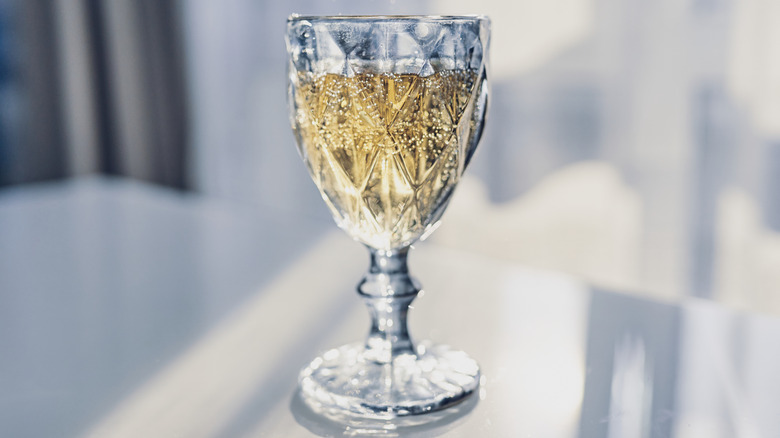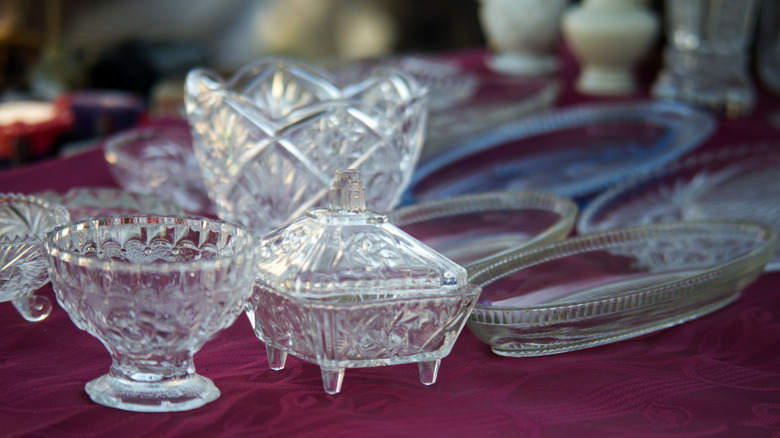The Easiest Way To Tell The Difference Between Crystal And Glass Dishware When Thrifting
Whether you're an aspiring collector of vintage dishes or someone who prides themselves on being a walking guide to all of the different types of cocktail glasses, deciphering glass from crystal can be pretty easy to do. Crystal is glass that's made with added minerals – like magnesium, zinc, and lead — that make it more durable than regular glass. It can also have a more elegant appearance. This added durability means it can be made thinner than regular glass without a large increase in fragility.
To know whether you've got crystal or glass, hold it up to a light source, whether it's a window, a lightbulb, or your phone flashlight. Crystal will create a lovely rainbow prism, while regular glass will just let the light shine on through. The next method is simple, and while it isn't exactly how restaurants choose their glassware, it might look less odd in a thrift store than shining a light through a bowl. Tap the glass with your finger — a gentle, long-lasting bell sound means you've struck crystal, while regular glass gives a short, more muted sound.
To understand if the crystal contains lead, pay attention to how long the bell sound lasts. Lead-based crystal will have the same sound as lead-free, but it will last longer. If you're a really committed investigator, keep a small ultraviolet light on hand to shine on the piece. Crystal will look purple and blue, while glass will not.
Vintage crystal usually isn't very valuable
If you're thrifting crystal or rummaging through an old box you found in the garage looking to make a buck or two off some pretty decor, it may quite literally only be worth a buck or two. Crystal isn't necessarily a rare find, especially if it's from the mid-1900s or even newer. Now, if you happen to have a piece of crystal that was handmade by a famous glass artist or made in the early 1900s or before, you might be holding something worth more money. There may be a market for anything, and if you're determined to find buyers, they probably exist. For vintage items like crystal, the value is dependent on the demand and scarcity.
Know that it's not recommended to use crystal dishware containing lead for storing anything with the intent to consume it later, but you can use crystal glasses containing lead to drink from. This is because a single serving of wine won't stay in the glass for much time, but when something is stored inside a vessel for a longer period, there's a chance some of the lead could leach into the contents.
Ensure you're caring for crystal properly by making sure you know how to clean vintage dishware without ruining it. Even if it won't make you rich, set it up somewhere in your home where it can catch the light and serve as a beautiful display piece.

